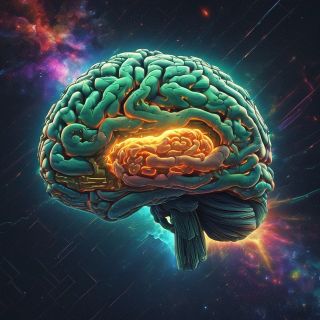Dementia
Are Inflammation and Alzheimer’s Disease Connected?
What new research says about an alternate hypothesis of Alzheimer's.
Posted June 27, 2024 Reviewed by Tyler Woods
Key points
- The pathogenesis of Alzheimer’s disease is still not clear.
- There may be a link between the inflammatory processes in the body and brain and development of dementia.
- Reducing inflammatory processes in our body and brain could help prevent or slow Alzheimer's.
June is Brain Awareness and Alzheimer’s Month, which is a good time to review news and advancements on the subject of Alzheimer’s disease, especially as it has been estimated that 6.9 million Americans age 65 and older are living with Alzheimer’s.
We still do not know for sure what causes the disease. Many researchers are studying the plaques and tangles that accrue in the in the brain of Alzheimer’s patients as a possible cause. Plaques are abnormal clumps of protein fragments that form in the brains of people with Alzheimer's disease, and tangles are abnormal accumulations of a protein called “tau” that collects inside nerve cells. Plaques and tangles spread throughout the brain, causing the brain tissue to shrink, which results in the progressive and significant cognitive and functional deterioration of people suffering from Alzheimer's.
However, other researchers (Kawas, C et al. 2015) found that some people can have plaques and tangles in their brain and never get Alzheimer's, while others may not have any of those deposits and still develop the disease. The researchers believe that people who have plaques and tangles and do not get the disease have some protective processes/mechanisms in their brains. Up to now, we really do not know what these processes are, but studies are ongoing to find out about this very interesting phenomenon.

One of the interesting hypotheses regarding the etiology of Alzheimer's is related to the inflammatory processes in the brain, usually as a result of inflammation in other parts of the body. Some research data indicates that systemic inflammation triggers neuro-inflammation and that peripheral inflammation may be an important factor that contributes to the initiation and progression of Alzheimer’s disease.
Research on elderly patients who suffered from COVID-19 (Liu et al. 2022) indicated an increased risk for dementia. However, we are still not sure if the neuro-inflammation that sometimes comes as a result of COVID is the cause or the consequence of the dementia.
The idea that inflammatory processes could be a factor in the pathology of Alzheimer’s disease sprouted many research projects on the use of NSAIDs (non-steroidal, anti-inflammatory drugs such as ibuprofen, naproxen, aspirin, etc.) as a possible method of prevention or slowing down Alzheimer’s. Epidemiological studies indicate that patients suffering from rheumatoid arthritis and treated with NSAIDs were relatively spared from Alzheimer’s disease. There were many clinical studies done on that subject, but the results were inconsistent.
Of course, NSAIDs, as any drugs, have side effects, so they should not be used to try to prevent or slow down Alzheimer’s, as the research is ongoing and proof is missing. Studies are ongoing on other kinds of anti-inflammatory drugs that may be helpful in the treatment of Alzheimer’s disease (Shaikh et al., 2023).
Since there may be a link between the inflammatory processes in the body and brain and the development of dementia, it is important to try to prevent or reduce the inflammatory processes in our body and brain. This is a subject for another post, but what we know now is that a healthy diet, such as the Mediterranean diet, and a healthy lifestyle that includes regular physical exercise (about 150 minutes of moderate-intensity physical activity such as walking), mental activity, healthy sleeping habits, and practicing yoga and meditation may be helpful.
References
Kawas, Claudia H., Ronald C. Kim, Joshua A. Sonnen, Szofia S. Bullain, Thomas Trieu, and María M. Corrada. “Multiple Pathologies Are Common and Related to Dementia in the Oldest-Old: The 90+ Study.” Neurology 85, no. 6 (August 2015): 535–542.
Liu, Yu-Hui. et al.”One-Year Trajectory of Cognitive Changes in Older Survivors of COVID-19 in Wuhan, China. A longitudinal Cohort Study.” JAMA Neurol. 2022:79 (5): 509-517
Xie,J. et al. “ The Impact of Systemic Inflammation on Alzheimer’s Disease Pathology”. Front. Immunol. January 2022.
Shaikh, s. et al. “ Design, synthesis and biological evaluation of novel antipyrine based a-aminophosphonates as anti-Alzheimer and anti-inflammatory agent.” Journal of Biomolecular Structure and Dynamics. Vol 41, issue 2, 2023.
Ozben, T. & Ozben, S. “ Neuro-inflammation and anti- inflammatory treatment options for Alzheimer’s disease.” Clinical Biochemistry, vol. 72, Oct. 2019.


